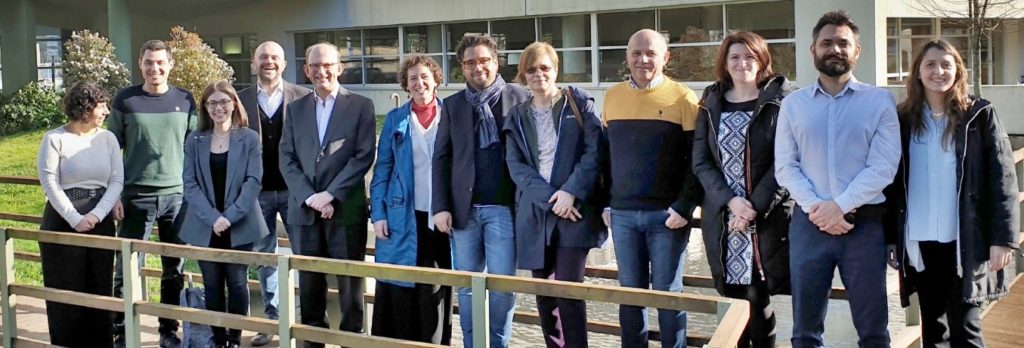Validation Workshops Organised by Partners of RE-ACT Projects
The five HEI partners of the RE-ACT project (PBS, BCE, TUKE, UBB, and UNIMC) organised online Validation Workshops that had as the main goal to present the conclusions of the Research Report and to validate the new statements that will integrate the new self-assessment tool being currently developed by the partnership.
In all the five partner countries, namely Hungary, Italy, Portugal, Romania, and Slovakia, participants highly appreciated the results of the Research Report. Within the 7 evaluation criteria dimensions (Relevance, Quality, Evidence, Novelty, Added Value, Usability and Sustainability/Multiplication), participants mostly marked the research results as “Good” or “Excellent” when considering the different aspects of the research. The most valued strengths of the research were its Relevance, Quality, and Added Value, while in some countries, Evidence, Novelty, and Usability reached a somewhat lower, but still quite significant, result. Even though the topic is complex, participants agreed it is very important and it should be taken into consideration.
Validation of the Statements
There were 8 dimensions of statements that the participants had to evaluate: (Leadership and Governance; Organisational Capacity, People, Incentives; Entrepreneurial Learning and Teaching; Preparing and Supporting Entrepreneurs; Digital Transformation and Capability; Knowledge Exchange and Collaboration; The Internationalised Institution; Measuring Impact). Regarding the statements underpinning the 8 dimensions, most participants considered the majority of the statements “Good” or “Excellent”. However, in some cases, they suggested rephrasing as some statements needed improvement in terms of wording.
In some cases, certain terms were considered unclear, like ‘open governance’ or ‘open governance model’, and the word ‘contamination’ in the ‘Organisational Capacity, People, Incentives’ dimension. Some participants drew attention to the general unclarity of the statements, mainly due to complicated wording. Overall, respondents suggested many of the statements are too long and complex, thus they should be simplified in order to become clearer.
Sentences should be made shorter, containing one piece of targeted information, and less appropriate terms, such as “contamination” should be avoided. Some participants also considered the term ‘third mission’ unclear in ‘Leadership and Governance’. Despite the fact that many of the statements were considered too long and/or complicated, some of the participants noticed that some statements are too general, for example in the ‘Knowledge Exchange and Collaboration’ dimension.
The RE-ACT partners took the feedback into consideration and are making the necessary changes to the statements.
Further information: jozsefpal.lieszkovszky@uni-corvinus.hu and andras.marton@uni-corvinus.hu
Further information
C épület, 321
Telefon: +36 1 482 7740 • Mellék: 7740
C épület, 319
